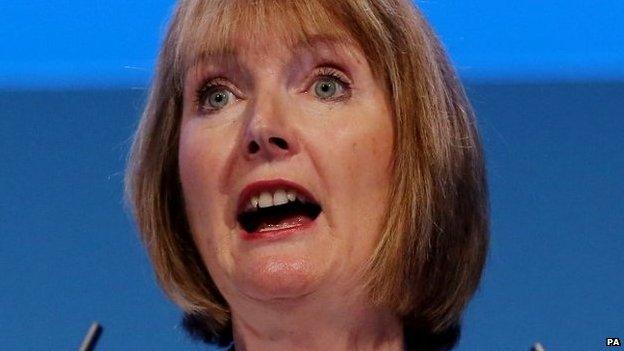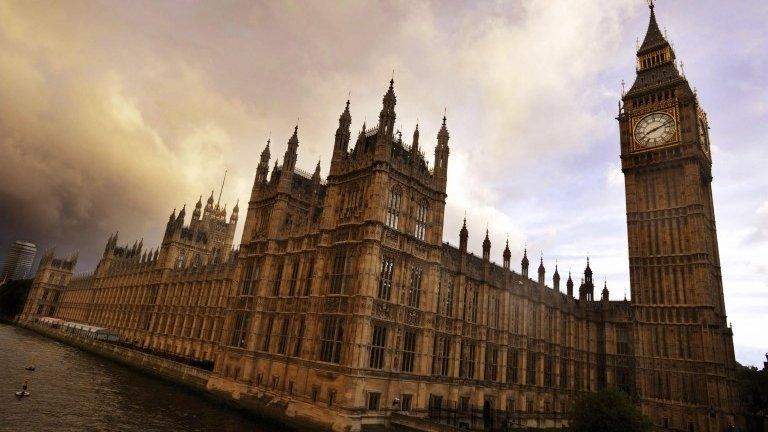Harriet Harman defends all-women Labour candidate lists
- Published

Labour deputy leader Harriet Harman has insisted all-female candidate shortlists are the only way to stop Parliament being "male-dominated".
She said she was "really uncomfortable" with the policy but added that "everything else" had failed.
Of Labour MPs elected in 2010, 86 were women and 169 were men, external.
Ms Harman's comments come as the party gathers in Manchester for its final annual conference before next year's general election.
Labour's economic policies are expected to come under extreme scrutiny, as well as its proposals for constitutional reform following the rejection of independence last Thursday by voters in Scotland.
At a pre-election rally, leader Ed Miliband promised a "new plan", focusing on improving access to affordable housing and helping small businesses.
'Huge row'
Before the main conference business gets under way on Sunday, figures including shadow home secretary Yvette Cooper and shadow equalities minister Gloria De Piero, took part in a special "women's conference".
Labour first backed all-women shortlists for selecting candidates at its 1993 conference.
Ms Harman told activists the parliamentary party had previously been "male-dominated".
She added: "No one likes all-women shortlists. It feels really uncomfortable to rule out men from a selection.
"But we tried everything else. We tried a woman on every shortlist, ending men-only shortlists. Well, that caused a huge row and made no difference - still it was the men on the shortlist who were selected.
"We changed the rules so that the shortlists had to be half women - an even bigger row and still nothing changed and it was the male half of the shortlist which got selected. So we were driven to the conclusion that it would have to be women-only shortlists."
Ms Harman admitted these were still "hugely contested and controversial wherever they are proposed".
But she said: "If you're against all-women shortlists, you're supporting inequality - defending a status quo in which men in the PLP (Parliamentary Labour Party) still outnumber women two to one."
Overall, of 650 MPs elected in 2010 across all parties, 147 were women.
- Published20 September 2014

- Published20 September 2014
